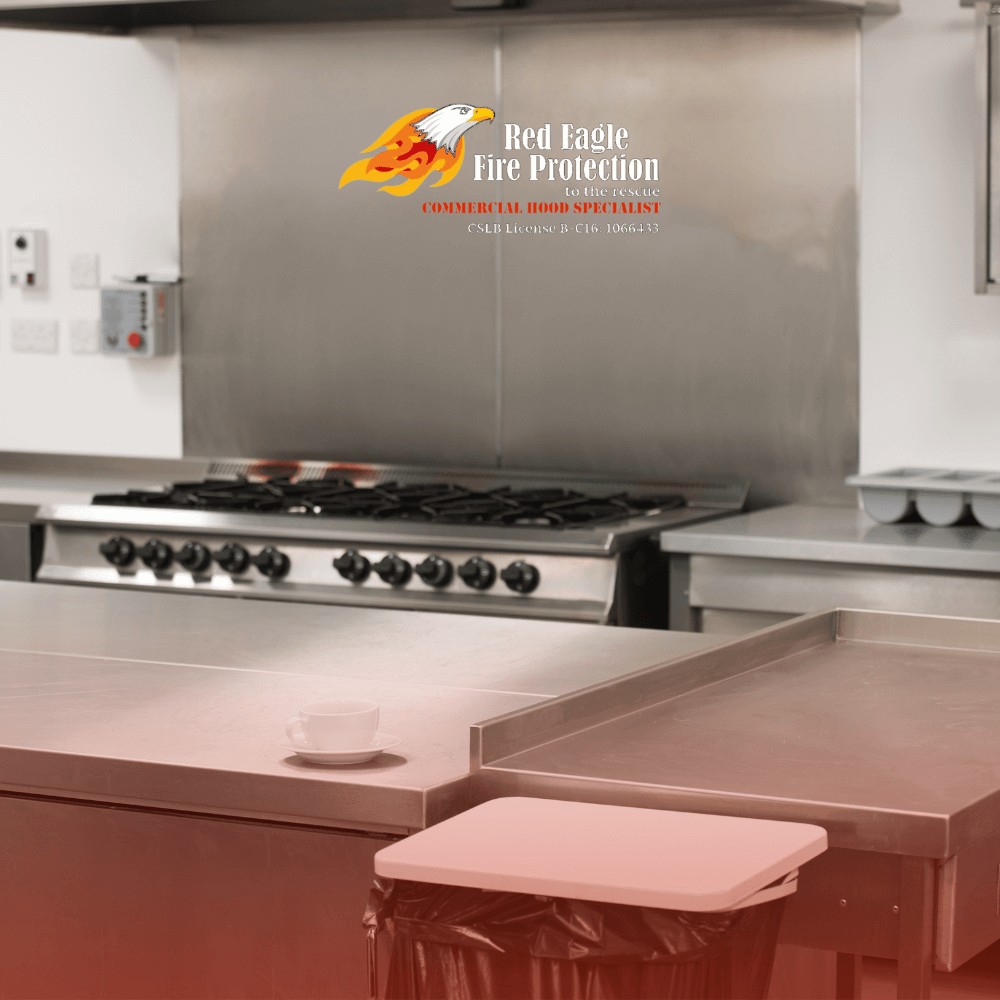In any commercial kitchen, kitchen exhaust hood maintenance is one of the most essential practices for ensuring safety and functionality. Exhaust hoods are designed to remove smoke, heat, and grease from the kitchen, preventing hazards and maintaining air quality. However, without regular maintenance, these systems can become clogged or malfunction, significantly increasing the risk of fire. Here’s why keeping up with kitchen exhaust hood maintenance is critical for fire safety and operational efficiency.
Why Kitchen Exhaust Hood Maintenance is Essential
The main function of an exhaust hood is to filter out grease and other airborne particles created during cooking. Over time, this buildup can become a serious fire hazard if not regularly cleaned and maintained. Proper kitchen exhaust hood maintenance ensures that grease traps, filters, and ducts are clear, preventing the accumulation of flammable materials that could ignite under high heat. Routine maintenance can mean the difference between a safe kitchen environment and a potential fire disaster.
Reducing Fire Hazards with Regular Maintenance
Grease fires are one of the most common causes of kitchen fires, especially in high-volume commercial kitchens. During kitchen exhaust hood maintenance, professionals remove grease deposits from the hood, fan, and ductwork, reducing fire risks. This maintenance not only keeps the system functioning smoothly but also ensures compliance with safety regulations, providing peace of mind to kitchen staff and owners alike.
Improving Air Quality and Ventilation Efficiency
A well-maintained exhaust hood doesn’t just protect against fires; it also improves air quality and ventilation efficiency. When an exhaust system is clogged or poorly maintained, it struggles to remove smoke, heat, and odors effectively, creating an uncomfortable environment for staff. Regular kitchen exhaust hood maintenance ensures that the system works at full capacity, keeping the kitchen air clean and comfortable while enhancing the health and safety of everyone in the kitchen.
Key Components in Exhaust Hood Maintenance
Proper kitchen exhaust hood maintenance involves inspecting and cleaning several key components:
- Filters: Grease filters trap particles that can clog the system. Regular cleaning or replacement is necessary to maintain efficiency.
- Fan Motor: The fan motor is crucial for ventilation. A malfunctioning fan can cause airflow issues, so inspecting and servicing the fan is essential.
- Ductwork: Grease buildup in ducts poses a fire risk. Cleaning the ducts regularly helps maintain a safe environment.
Compliance with Health and Safety Regulations
Most commercial kitchens must adhere to strict health and safety codes, which require regular kitchen exhaust hood maintenance to reduce fire risks. Non-compliance can result in fines, forced closures, or insurance complications. Keeping up with maintenance not only ensures compliance but also helps protect the kitchen’s investment, as it prevents costly repairs and system replacements over time.
The Importance of Professional Maintenance Services
Professional kitchen exhaust hood maintenance services offer the expertise needed to clean and inspect complex exhaust systems thoroughly. Certified technicians follow industry standards, ensuring that all components, from filters to ductwork, are well-maintained and safe. By investing in professional maintenance, kitchen owners can be confident that their systems are operating safely and efficiently.
Protect Your Kitchen with Regular Exhaust Hood Maintenance
In conclusion, regular kitchen exhaust hood maintenance is essential for fire safety, air quality, and compliance with health regulations. By addressing grease buildup, inspecting key components, and partnering with professional maintenance services, you can protect your kitchen from fire hazards and maintain a safe working environment. Make kitchen exhaust hood maintenance a priority, and safeguard your kitchen’s operations for the long term.
READ MORE:

